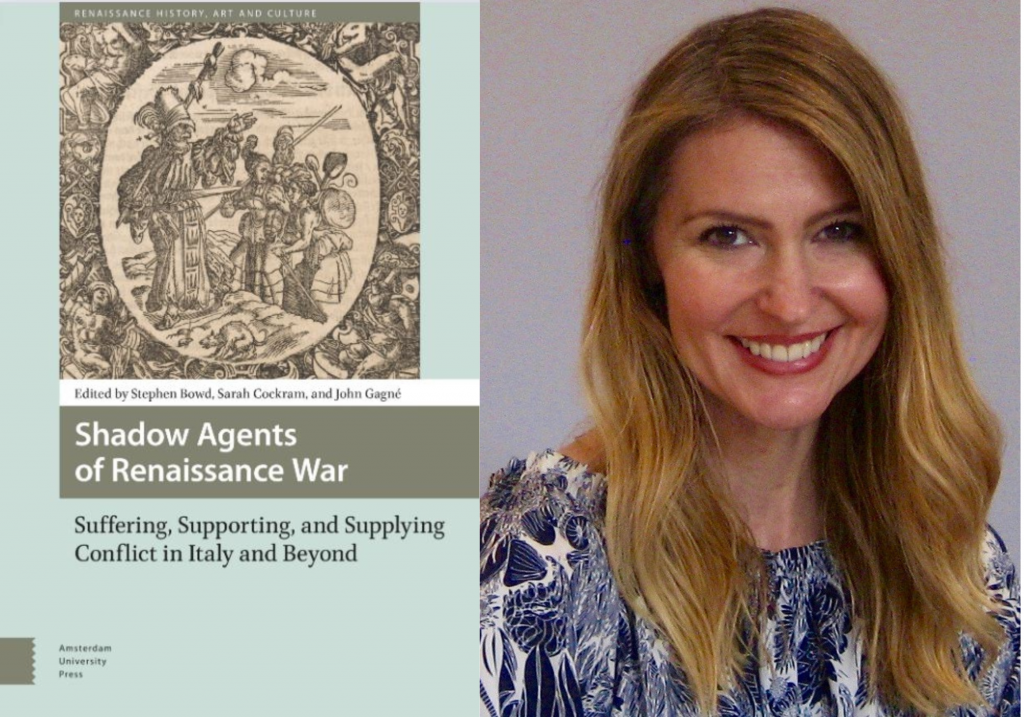
Dr. Victoria Bartels is a graduate of our Master’s in Renaissance Art program and began teaching a class on Italian Arts from Antiquity to Michelangelo for us this semester. Her research focuses on material culture, arms and armor, dress, and gender in early modern Europe as well as 19th century perceptions of the Renaissance.
In January, she published “Prisoners for War: Convicts, Slaves, and the Culture of Forced Labour in Sixteenth-Century Tuscany” in the edited volume Shadow Agents of Renaissance War: Suffering, Supporting, and Supplying Conflict in Italy and Beyond, edited by Stephen Bowd, Sarah Cockram, and John Gagnè and published by Amsterdam University Press.
In an attempt to shed light on some of history’s unwilling agents of war, her chapter examines the role of criminals in the martial initiatives of Cosimo I de’ Medici, who governed as Florence’s Duke from 1537–69 and then as the Grand Duke of Tuscany from 1569–74. The bulk of this study focuses on the crewmembers of Medicean warships. Large numbers of workers were also needed for state-sanctioned fortification and expansion projects. By presenting a more detailed picture of the involuntary personnel that fueled Medicean military enterprises, her study aims to redefine the notion of ‘soldier’, as well as demonstrate how forced labor was sourced, organized, and deployed in service of the early modern Tuscan state.
The essay is part of a collection investigating the shadow agents of Renaissance war by using new archival evidence and sources like literature, artworks, and other non-textual material to uncover the men, women, children and animals who sustained war by means of their preparatory, auxiliary, infrastructural, or supplementary labor. These shadow agents worked in the zone between visibility and invisibility, often moving between civilians and soldiers, and their labor was frequently forced.
